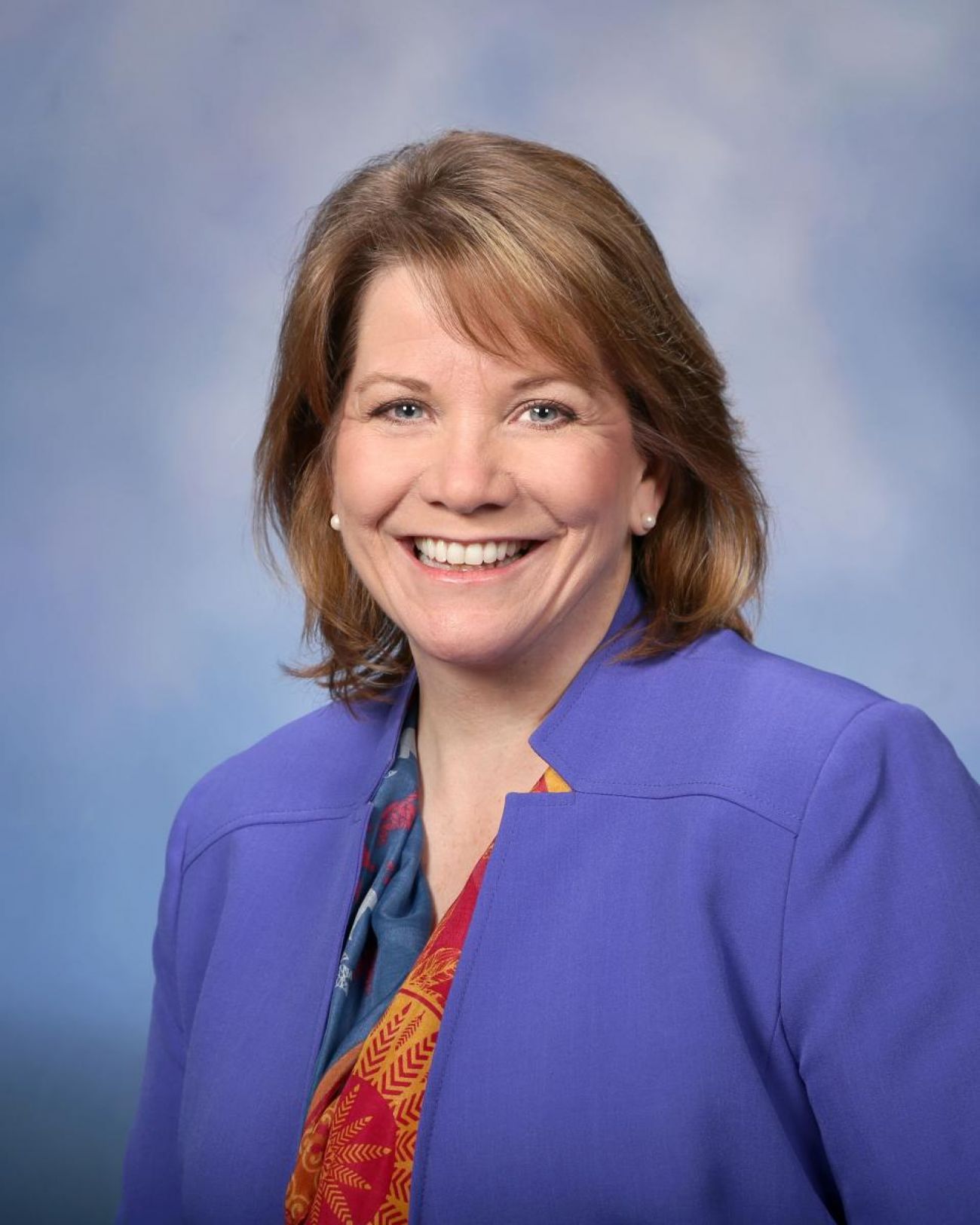Lee Chatfield raised millions, traveled often. Michigan law kept much secret

March 17: Michigan GOP seeks lobbying, finance reforms after Lee Chatfield scandal
Feb. 3: Lee Chatfield allegations fuel push for ethics reform in Michigan Legislature
Jan. 31: Michigan Attorney General now involved in Lee Chatfield sex assault probe
LANSING — Lee Chatfield is a 33-year-old father of five, made $95,985 per year as speaker of Michigan’s House and, until recently, had a reputation as a humble son of a northern Michigan pastor.
In the last few weeks, though, following allegations from his sister-in-law of sexual abuse, new revelations have emerged from former colleagues that he had extravagant taste and traveled so frequently he sometimes canceled House votes to catch planes, according to more than a dozen interviews by Bridge Michigan and the Michigan Campaign Finance Network.
About this partnership
Bridge Michigan partnered on this story with the Michigan Campaign Finance Network, a nonpartisan nonprofit dedicated to shining the brightest light possible on money in Michigan politics through independent investigative journalism, research and education. You can sign up for their mailing list here.
Records show one nonprofit tied to Chatfield, the Peninsula Fund, spent nearly a half-million dollars on travel and food in 2020 alone, but IRS rules don’t require it to disclose donors or explain how the money was spent.
Related:
- Jan. 21, 2022: Michigan school run by Lee Chatfield’s family didn’t report past abuse claim
- Jan. 12, 2022: Citing likely suit, Lee Chatfield accuser demands church, school save info
- Jan 11, 2022: From pulpit, Lee Chatfield’s father declares ‘the truth will come forward’
- Jan. 7, 2022: Sister-in-law: Ex-MI House Speaker Lee Chatfield sexually assaulted me as teen
Some question how Chatfield could have afforded such a lifestyle, but Michigan’s scant disclosure requirements for elected officials make it impossible to know many details about Chatfield’s travels, expenses or donors. Michigan ranked 47th of 50 states in the Coalition for Integrity’s 2020 S.W.A.M.P. Index, a measurement of state-level anti-corruption measures.
Sen. Ed McBroom, the chair of the Senate Oversight Committee, reviewed an overview of Chatfield-related finances provided by Bridge and MCFN and called them “very disturbing and very heartbreaking.”

Chatfield, McBroom said, had been a longtime friend.
“I don't believe that this level of corruption is the norm,” said McBroom, a six-year state House member who was elected in 2019 to the Senate. “The red flags we look back and see now, I don't see to this extent anywhere else in my tenure. But citizens deserve the assurance that that’s not going on.”
Chatfield left the Legislature due to term limits last year. Among other revelations, a Bridge-MCFN investigation into his finances found:
- Two of the highest-paid House staffers under Chatfield also controlled the finances for the Peninsula Fund while owning a consulting firm that was paid nearly $500,000 from various Chatfield funds. One of the two staffers also coordinated Chatfield’s travel, according to his brother.
- Chatfield paid four immediate family members nearly $115,000 in total from various accounts since he was elected in 2014.
- Chatfield went on numerous trips paid for by outside organizations, but Michigan’s weak transparency laws meant he had to disclose none of them.
The finances are attracting attention in part because of allegations from Rebekah Chatfield, who alleged Chatfield sexually abused her beginning when she was 15 or 16 at a northern Michigan Christian school run by Chatfield’s father, Rusty. Lee Chatfield was a teacher at the school at the time.
The allegations are supported by her husband, Aaron. He is Lee’s younger brother and served as his unofficial driver when he worked for a Republican consulting firm.
Speaking to Bridge in December, Aaron Chatfield described a lifestyle that involved frequent flights, parties and trips on a moment’s notice.
“He went on more trips than anybody. He was gone all the time,” Aaron Chatfield said.
Lee Chatfield, who is married, has acknowledged a sexual relationship with Rebekah Chatfield and other women but claimed the relationship with his sister-in-law was consensual and began when they were both adults.
Bridge and MCFN sent Chatfeld’s attorney, Mary Chartier, six questions about his fundraising, schedule and his use of the Peninsula Fund. Chartier only responded that Chatfield “believes that the law has been complied with and that the fund has met all its legal obligations.”
Michigan is an outlier in how little transparency it requires of its elected leaders. It is one of two states that have zero financial disclosure requirements for legislators. There are also no state ethics laws for Michigan lawmakers and lobbying disclosure requirements are easily circumvented.
Know your terms
Lawmakers and interest groups use different types of accounts to collect and spend money, and they have different levels of transparency. Here’s a primer on the most common accounts.
Campaign committees: A committee set up by an office seeker to collect and spend donations for the purposes of seeking office. Reports must be filed to the Michigan Secretary of State.
PACs: This is an acronym for “political action committee.” Contributions and spending are reported, and reports are filed statewide at the Michigan Secretary of State.
Leadership PACs: These are political action committees tied to a specific lawmaker. Their reports are filed with the Michigan Secretary of State. They can contribute 10 times the amount an individual can. With the four Chatfield controlled, he could give House allies $42,000 an election cycle.
501(c)(4): These are nonprofit “social-welfare” organizations that have become popular among politicians. The nonprofits can accept unlimited contributions from corporations without publicly disclosing donors. They must file reports with the IRS.
Source: The Michigan Campaign Finance Network
“The lack of ethics laws does leave the door wide open for elected officials to engage in activity that is not only corrupt, but also could damage the public's trust,” said Kedric Payne, the senior director of ethics at Campaign Legal Center, a Washington D.C. nonprofit that advocates for fuller government transparency.
“Voters have a right to know that their elected officials are acting in the public interest and not in their own personal interest. And that's why financial disclosure laws are a necessity across the board.”
Power through money
A hallmark of Chatfield’s time in the Legislature was his ability to bring in cash.
Over a six-year period, Chatfield’s four leadership PACs raised nearly $5.2 million, an unprecedented amount for a legislator. More than $2.1 million of that total was raised during his last year in office.
In contrast, the next most prolific fundraiser in Michigan’s legislative history was former Senate Majority Leader Arlan Meekhof, who left office in 2019 and never raised more than $700,000 in a calendar year from leadership PACs.
The vast majority of Republicans in the Legislature today have had their campaigns or leadership PACs bolstered by Chatfield’s largesse.
An analysis by the Michigan Campaign Finance Network found 56 of 77 Republican lawmakers now serving in Lansing received contributions from one of Chatfield’s PACs. More broadly, his PACs totaled nearly $2.4 million in donations to Michigan Republican candidates and their own leadership PACs while he was in office.
“Anyone who didn't know just how powerful Lee Chatfield was in Lansing was not paying attention,” said Christine Greig, a Farmington Hills Democrat who served as House minority leader when Chatfield was speaker.
In 2020, Chatfield’s nonprofit account, the Peninsula Fund, raised in excess of $750,000 and spent $454,337 on food, dining, travel and entertainment, according IRS documents obtained by Bridge Michigan and MCFN.
Management of all these finances rested with two of Chatfield’s senior staffers in the Legislature, Anne and Rob Minard.

As majority chief of staff, Rob Minard made $164,300, the most of any House staffer, while Anne had a salary of $116,600 as director of external affairs, according to state records.
Chatfield, in his farewell speech on the House floor in December 2020, said he was indebted to the couple. “I would not be where I am without you and I would not be who I am without you,” he said at the time.
The Minards reaped six-figure benefits from their relationship with Chatfield, as the Michigan Campaign Finance Network first reported in 2020.
While both worked full-time in the Legislature, they also owned a consulting firm called Victor Strategies. Chatfield’s leadership PACs, his campaign and a connected super PAC paid them about $493,000 in a three-year period from 2018 through 2020.
In total, more than $1.1 million was paid to the firm from Republican campaigns and PACs while at least one of the Minards was also paid a legislative salary. Anne Minard is still employed in the House as an event and affairs coordinator, according to The Detroit News.
Michigan ranks low
Shruti Shah, the director of the nonprofit Coalition for Integrity, said she was taken aback by the sheer volume of Chatfield-connected money routed through channels that avoid disclosure.
“It seems a deliberate attempt to add secrecy, which in my mind only gives rise to the perception of corruption,” Shah said.
She said the payments to the Minards give the appearance they were “done to influence the actions of the speaker.”
“While you can't confirm that, that's the perception it gives, that it's to influence his actions because it's a person so close to him,” she said.
In 2020, Peninsula Fund also paid an additional $151,568 to Victor Strategies, according to the filings first obtained by The Detroit News. It’s almost exactly 20 percent of the $753,482 the Minards reportedly raised for the fund, according to the disclosure.
A host of organizations including the National Council of Nonprofits and Association of Fundraising Professionals consider the practice of charging a percentage for fundraising, rather than a flat fee, unethical.
In Congress, Payne said these types of arrangements are closely policed.
“Senior staffers are limited with the amount of money they can receive not only from a campaign but from any other source,” Payne said. “Any violation of those rules can have consequences.”
Anne and Rob Minard also did not respond to multiple requests for comment.
Relatives on payroll
Campaign finance filings show eight of Chatfield’s relatives were also paid from the former speaker’s various accounts.
From 2018 through 2020, brother Aaron Chatfield received $33,747, while another brother, Paul Chatfield, was paid $28,596. Nearly all the payments are listed as wages.
Campaign finance records document money being allocated at irregular intervals, switching between Lee Chatfield’s campaign and three of his leadership PACs without any apparent pattern or rationale.
While it’s not unusual for family members to work on and be paid by campaigns, in 2018 both Paul and Aaron Chatfield were working full-time in the Legislature but were paid more than in 2019 or 2020.
In an interview with Bridge Michigan, Aaron Chatfield said he worked closely with Anne Minard, who he said also coordinated all of Lee Chatfield’s trips.
“For two years on, it was ‘Hey, Lee’s gotta do this, Lee is flying out here, you got to drop him off at the airport, you’ve gotta pick him back up,’” Aaron Chatfield said.
He said he drove Lee Chatfield to Detroit approximately 150 times, often without knowing whether it would be an all-night excursion.
Aaron Chatfield has not responded to numerous requests for a follow-up interview since a wide-ranging discussion in December.
Bridge and MCFN spoke to four current and former lawmakers who said Chatfield changed as he became more powerful in Lansing. He was elected speaker in 2019.
“He was on this power track and then he just delivered. He pops the (record) fundraising numbers, he did it all, but along with that was a departure from the original values that he purported to come to town with,” said a former legislative colleague who spoke on the condition of anonymity given his proximity to the former speaker.
A tight-knit group
Lawmakers who spoke to Bridge and MCFN said Chatfield had a tight-knit inner circle that included legislative staffers, lobbyists and two other lawmakers: former Rep. Brandt Iden, R-Oshtemo Township, and Rep. Jim Lilly, R-Park Township.
Chatfield was documented attending a number of trips with Iden, Lilly, or both, including in New Orleans, Hawaii, PGA Tour headquarters in Florida and Atlanta. All were sponsored by external organizations but none were disclosed by the lawmakers. Shortly after the 2020 election, Chatfield, Lilly and Rob Minard were photographed together drinking champagne at the Trump hotel in Washington, DC.
It’s unclear how many trips Chatfield took, or who paid for them, because of the void in Michigan law where other states have ethics rules. Without more robust disclosure requirements, it becomes difficult to distinguish between sponsored trips with educational or policy value and travel taken solely for pleasure.
“It is very common to see state ethics laws that require elected officials to report this type of travel that's provided by a third party,” said Payne with the Campaign Legal Center.
“The reason why is that in order to know whether there are any potential conflicts of interest, ethics laws require disclosure of gifts and other types of financial benefits received from any third party.”
In the U.S. House of Representatives, “gift travel” is required to be disclosed by representatives under the body’s rules. Neither chamber of the Michigan Legislature requires the same of elected officials.
Former and current legislators told Bridge and MCFN that, if a House session was cut short without explanation, the assumption in the Republican caucus became that Chatfield had a plane to catch.
“There are multiple times where basically we were told that we had to get done with the session at a certain point on Thursdays … And it seemed it was because Speaker Chatfield, Brandt Iden and Jim Lilly probably had plane tickets to go somewhere and they had to make sure they got done,” the lawmaker, who spoke on the condition of anonymity to speak candidly about Chatfield, said in an interview.
Former Majority Floor Leader Triston Cole said he felt Chatfield kept him “at arm’s length,” even though he was the third in command in the House.
“There were many times I was disgusted that we didn't accomplish more on Thursdays in particular,” said Cole, who is running for state Senate in the 37th district, which includes Chatfield’s hometown.
Chatfield’s majority funds are far and away the largest donors to both Iden and Lilly’s own leadership PACs. Michigan Strategic Leadership Fund, Lilly’s leadership PAC, received $102,000 from Chatfield’s PAC, his largest total to any legislator-connected PAC.
Bridge and MCFN reached Iden, who was term-limited out of the Legislature in 2020, for an interview. He said he was “blown away” by the sexual assault allegations against Chatfield and called them “shocking.”
He acknowledged he had been close with the speaker and spent a lot of time working with Chatfield, referring to him as a “good friend,” but knew nothing of Chatfield’s social life while in office.
Iden declined to say whether he had done any personal traveling in office using a nonprofit account controlled by himself or another legislator.
“I didn’t say that I did or didn’t go on any travel,” Iden said. “I can’t answer that question. I mean, I’m not gonna… couldn’t tell you.”
Lilly didn’t respond to multiple requests for comment.
‘Most expensive bottle .. every time’
Chatfield’s relationship with lobbyists was also talked about in Lansing.
David Forsmark, owner of the political consultancy Winning Strategies in Flushing, said Chatfield had a reputation among Lansing lobbyists as the type of person who "walked in, ordered the most expensive bottle of wine every time and then found somebody to charge it to."
During his time in the Legislature, Chatfield received the most individual food and beverage expenses of any public official, though most meals lawmakers receive from lobbyists go unitemized.
Payne said these revelations serve as a case study in the importance of ethical safeguards.
“The very basic foundation of any attempt to have public trust is to have ethics laws, which improved financial disclosure requirements,” Payne said. “In this situation, where you don't have these laws, you're pointing out an example that shows the importance of the need of those laws.”
McBroom agreed with that sentiment, but acknowledged he’s reluctant to make public the finances of his own business, a dairy farm. Still, he told MCFN he’s working on legislation that he hopes will address some of the ways that he said the Chatfield and the Minards were able to keep their spending undisclosed and profitable.
“The inconvenience that might come from some additional transparency is worth it,” he said. “Even my hesitancy on some of these things, just because of private family finances, may need to give way to these other, more important causes for public confidence in their government.”
— Bridge reporter Kelly House contributed
See what new members are saying about why they donated to Bridge Michigan:
- “In order for this information to be accurate and unbiased it must be underwritten by its readers, not by special interests.” - Larry S.
- “Not many other media sources report on the topics Bridge does.” - Susan B.
- “Your journalism is outstanding and rare these days.” - Mark S.
If you want to ensure the future of nonpartisan, nonprofit Michigan journalism, please become a member today. You, too, will be asked why you donated and maybe we'll feature your quote next time!




